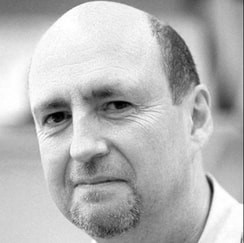
From Serendipity to Success
The Career Path of John Gordon
The career path of John Gordon, Professor (Emeritus) of Immunology, a Co-founder and Vice President of Scientific Affairs at Celentyx Ltd, has been anything but linear. From his early years in chemistry to his decades-long journey in immunology, his story reflects a series of serendipitous events that led him to where he is today. “Unlike a lot of people who say ’this is what I’m going to do’ and then strive to stick to it, my path has always felt highly serendipitous,” Gordon muses, reflecting on his journey.
Gordon’s academic journey began with a Chemistry degree at the University of Birmingham, inspired by a high school chemistry teacher who ignited his passion for science.
“He was just an amazing, inspiring individual,” Gordon recalls, speaking fondly of the teacher who convinced him that university was a possibility, even though his background made it seem unattainable.

Initially planning to become a Customs Officer, Gordon chose a path in Science, thanks to his teacher’s guidance. After completing his Chemistry degree, Gordon stumbled into Immunology. A job listing for a laboratory scientist in an Immunology lab caught his eye, and after some quick research, he found himself working alongside John Smith, who was setting up an Immunology lab in Southampton General Hospital in 1974.
“Back then, Immunology was a nascent subject, and that was part of the excitement,” Gordon recalls.
This marked the beginning of Gordon’s lifelong involvement with human B cells—a topic that would shape his research for the next half century. As his career progressed, Gordon took on various roles, including postdocs in Southampton and at the Karolinska Institute in Sweden, and later, faculty positions in the UK and Australia. But it wasn’t just academia that drove him; it was his passion for applying science in a practical, patient-centered way that pushed him to explore the world beyond the academic setting.
“These days, I’m fortunate not to be driven by financial concerns or career progression anymore,” Gordon admits. “The benefit reaches the patient—that’s what matters.”
His motivations have somewhat set him apart from many of his peers. Unlike some academics who are driven by career milestones or financial gain, his focus has been on the wider impact of his work—how his research and innovations can directly benefit patients. This commitment to helping patients became even better realised during his transition to the private sector.
In his late 50s, Gordon faced a personal tragedy that changed the course of his life. After the unexpected death of his daughter, Gordon knew he needed a significant change.
“We, myself and my wife, just knew that we had to make a radical change in our lives to somehow move on.”
This pivotal moment led him to leave academia, move location and fully embrace a venture already entertained with his co-founder, Nick Barns—Celentyx, a clinical research organization (CRO) focused on human immunology and neuroscience. Although the company initially had to contend with lapsed patents, it soon found its footing by adapting to client needs, growing organically, and fostering valuable relationships with clinicians.
Reflecting on his work-life balance, Gordon emphasizes the importance of boundaries.
“To me, family is the most important thing in my life,” he says firmly. “My career and trying to do well in my career has been motivated by wanting to provide what’s best for my family.”
This unwavering commitment to family has shaped his approach to work, where productivity takes precedence over long hours spent at a desk or laboratory bench.
As a Chief Scientific Officer turned Chairman, Gordon’s focus has shifted from conducting research to guiding the direction of Celentyx. However, his passion for science remains undiminished.
“I work as much as I want to. But it took 50 years to get here,” he laughs.
He continues to stay active in the scientific community through his social media presence, regularly engaging with the latest literature on LinkedIn.
When it comes to advice for young researchers, Gordon is clear:
“The most important thing is that someone moves. Move around!”
He believes that exposure to different environments and meeting new people is crucial for personal and professional growth.
“The people you meet, the completely different environment—all of these things play a role in personal and professional development,” he says.
Gordon also highlights the importance of sociability, noting that building a network and connecting with others is essential for success.
In recognition of his contributions to Immunology, Gordon has been honored by the Croatian Society of Immunology. This accolade stemmed from his collaborative work with Croatian researchers, where his practical insights helped advance their research. Esteemed researcher Grant Gallagher, a well-known figure in the field, acknowledged Gordon’s work by noting that Gordon had “redefined the way we see B cell biology.” This statement underscores the profound and lasting impact Gordon’s work has had on Immunology and the global scientific community.
Though Gordon’s journey was shaped by both chance and opportunity, he remains steadfast in his belief that, as long as you stay open to new possibilities, your career will unfold in unexpected, rewarding ways. His advice to young career researchers?
“Go with the flow.”
He didn’t have a grand plan when he started, but he always focused on what seemed best for him—and his family. And, as his career has demonstrated, success is less about following a prescribed path and more about embracing the unexpected twists and turns along the way.
Written by Austeja Baleviciute, PhD student at Karolinska Institutet and participant in the course “Career Skills for Scientists” during the spring term 2025.


0 comments